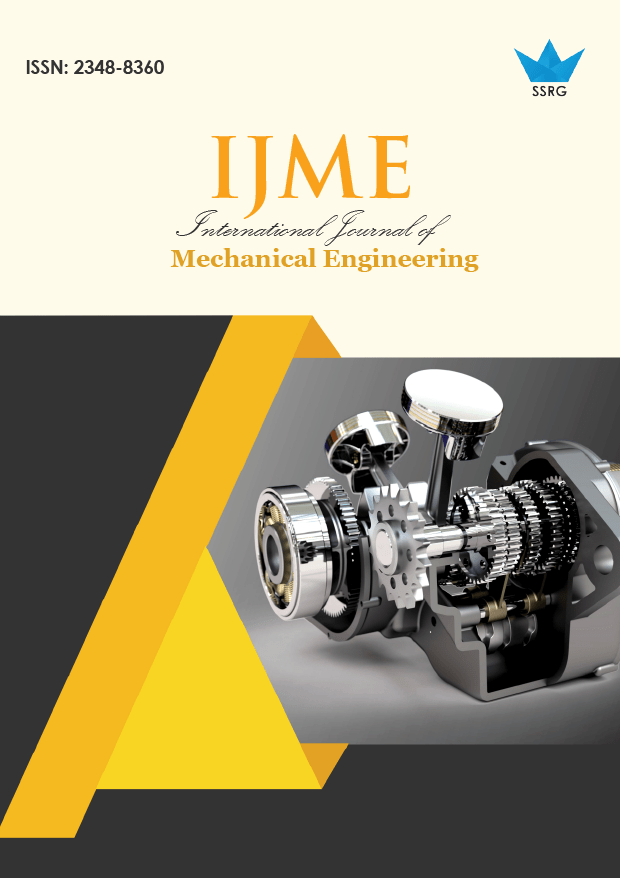Design and Development of Secondary Glass Fiber Roving Waste Prototype for Preventing Environmental Hazard

| International Journal of Mechanical Engineering |
| © 2017 by SSRG - IJME Journal |
| Volume 4 Issue 4 |
| Year of Publication : 2017 |
| Authors : Nelson Prem Kumar. M, V.S Anantha Sivaraman, N. Prakash |
How to Cite?
Nelson Prem Kumar. M, V.S Anantha Sivaraman, N. Prakash, "Design and Development of Secondary Glass Fiber Roving Waste Prototype for Preventing Environmental Hazard," SSRG International Journal of Mechanical Engineering, vol. 4, no. 4, pp. 27-32, 2017. Crossref, https://doi.org/10.14445/23488360/IJME-V4I4P108
Abstract:
Glass fibre roving waste generated during the manufacture of automobile interiors lack a proper way to dispose and hence cause environmental hazard. To overcome this issue, a potential way to reuse the roving waste has been explored. Two prototypes were designed and developed for dispensing the secondary roving glass fibre waste by dispenser mechanism. The proposed dispenser mechanism was reintroduced with unutilized roving into the process line of automobile interior to attain proper output. Results showed the requirement of roving per headliner as 400 g/headliner. But the further optimization of this dispensing mechanism could help to reuse the glass fibre waste efficiently.
Keywords:
Glass fibre, Hazard, Roving waste
References:
[1] Pickering Stephen, Recycling technologies for themoset composite materials-current status. Composites A, 37, 1206-1215, 2006.
[2] Conroy, A., Halliwell Sue., Reynolds Tim, Composite Recycling in the Construction Industry. Composites: Part A 37: 1216–1222,2006.
[3] Lopez FA, Martin MI, Alguacil FJ, Rincon JM, Centeno TA and T Romero. Thermolysis of fibreglass polyester composite and reutilization of the glassfibre residue to obtain a glass ceramic material. J Analy. Appl. Pyrolysis 93, 104-112, 2011.

 10.14445/23488360/IJME-V4I4P108
10.14445/23488360/IJME-V4I4P108